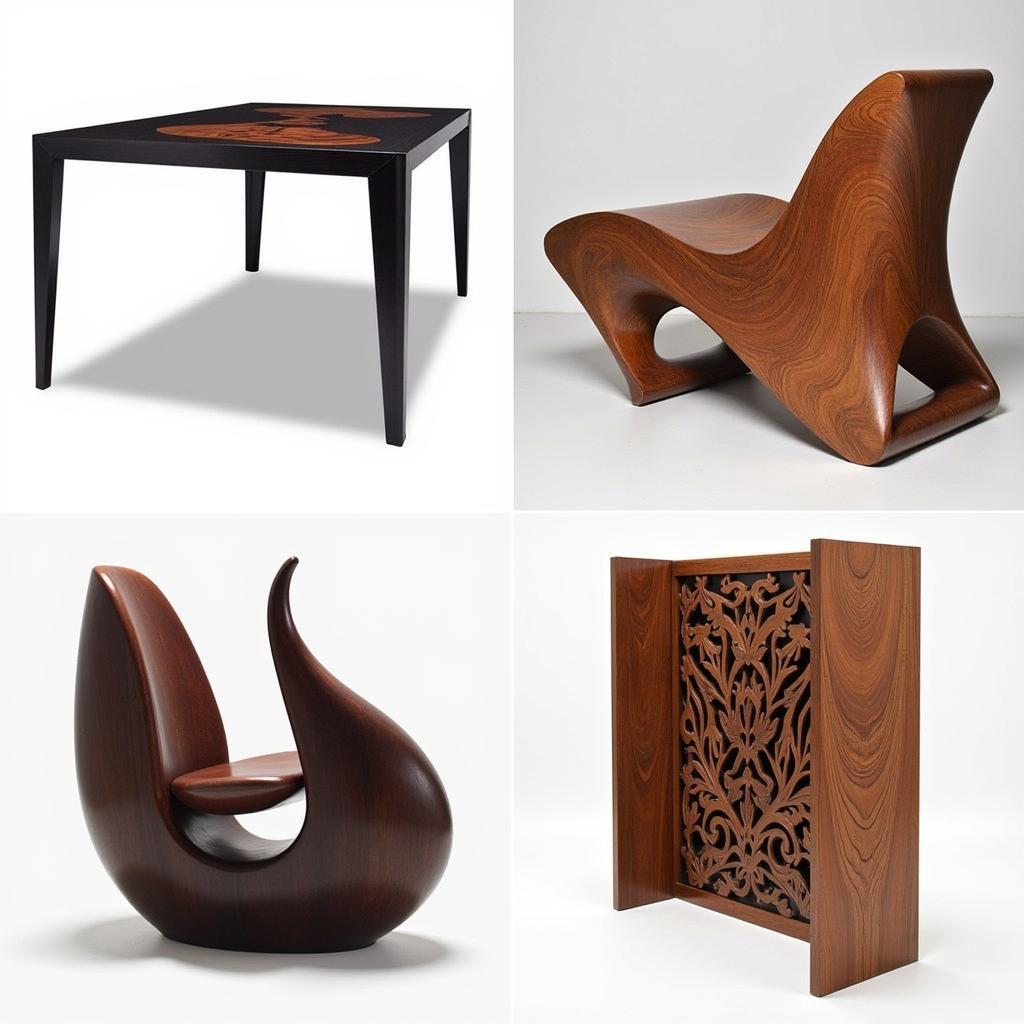African Blackwood Uses: A Comprehensive Guide
African blackwood, scientifically known as Dalbergia melanoxylon, is a highly prized and versatile timber renowned for its rich, dark color, exceptional density, and resonant qualities. This article explores the diverse applications of this remarkable wood, delving into its history, cultural significance, and the factors that contribute to its enduring popularity. We’ll also discuss the challenges surrounding its sustainability and the efforts being made to ensure its future.
A Legacy of Craftsmanship: Historical African Blackwood Uses
For centuries, African blackwood has held a special place in the traditions of various African communities. Its remarkable durability made it ideal for crafting essential tools, weapons, and household items. From sturdy agricultural implements to intricately carved ceremonial objects, the wood’s versatility allowed it to become integral to daily life and cultural expression. Early trade routes saw African blackwood reach distant lands, contributing to its widespread recognition as a premium material. You can find African blackwood trees to buy online these days.
African blackwood’s close-grained texture and natural resistance to insects and decay further enhanced its appeal. Its rich, dark hues, ranging from deep brown to almost black, added a touch of elegance and sophistication to objects crafted from it. This characteristic made it especially sought after for creating decorative items, jewelry, and musical instruments.
The Sound of Music: African Blackwood in Instrument Making
Perhaps the most renowned application of African blackwood lies in the world of musical instruments. Its unique acoustic properties, density, and ability to be finely carved make it the preferred choice for crafting high-quality woodwind instruments, particularly clarinets, oboes, and flutes. The dense wood allows for precise bore construction and contributes to the instrument’s resonant tone and projection. Its stability ensures that the instrument maintains its structural integrity and tuning over time.
The demand for African blackwood in instrument making has significantly increased over the years, placing pressure on its natural resources. Efforts are being made to cultivate the tree sustainably and explore alternative materials to mitigate the impact on wild populations. Consider an [African blackwood plantation in India] as an alternative.
Beyond Music: Modern African Blackwood Uses
While musical instrument making remains a prominent use, African blackwood continues to find applications in other areas. Its inherent beauty makes it a popular choice for high-end furniture, decorative veneers, and intricate carvings. Luxury items such as pens, knife handles, and chess pieces also benefit from the wood’s durability, aesthetic appeal, and the prestige associated with its rarity.
 African Blackwood Furniture and Art
African Blackwood Furniture and Art
It’s worth noting that due to its slow growth and high demand, African blackwood is a costly material. This contributes to its exclusivity and desirability in niche markets. Check out the [African hardwood trees list] for other options. You can also find more information about the [African ebony tree].
What are the unique properties of African Blackwood?
African blackwood is prized for its density, resonance, and dark color, making it ideal for musical instruments and fine woodworking.
Is African Blackwood expensive?
Yes, due to its slow growth, high demand, and restricted supply, African blackwood is considered a premium and expensive wood.
What is the scientific name for African Blackwood?
The scientific name for African Blackwood is Dalbergia melanoxylon.
Where can I buy African Blackwood?
Sourcing African Blackwood responsibly is crucial. Check out resources online, like buying an [African blackwood tree buy online], to ensure sustainable practices are followed.
What are some sustainable alternatives to African Blackwood?
Researching alternative woods with similar properties is important for conservation. Consider looking into [African ebony tree seeds] for future planting.
Conclusion
African blackwood, with its unique properties and diverse applications, remains a highly sought-after material. From its historical use in traditional crafts to its modern application in musical instruments and luxury goods, the wood’s versatility and beauty continue to captivate. While its high value and increasing scarcity necessitate careful management and sustainable practices, the legacy of African blackwood continues to inspire creativity and craftsmanship around the world. Understanding its uses and the challenges surrounding its conservation are essential for ensuring the future of this remarkable resource.
FAQ
- What is African blackwood primarily used for? Musical instruments, primarily woodwinds.
- Why is African blackwood so expensive? Slow growth, high demand, and limited availability.
- Is African blackwood sustainable? Its sustainability is a concern due to overharvesting.
- What are the characteristics of African blackwood? Dense, dark, resonant, and finely textured.
- What is a good alternative to African blackwood? This depends on the specific application, but other dense hardwoods can sometimes be substituted.
- How can I identify African blackwood? Its dense, dark color and fine texture are key identifiers.
- Where does African blackwood grow? Primarily in dry regions of sub-Saharan Africa.
If you need further support, please contact us at Phone Number: +255768904061, Email: kaka.mag@gmail.com or visit us at: Mbarali DC Mawindi, Kangaga, Tanzania. We have a 24/7 customer support team.

